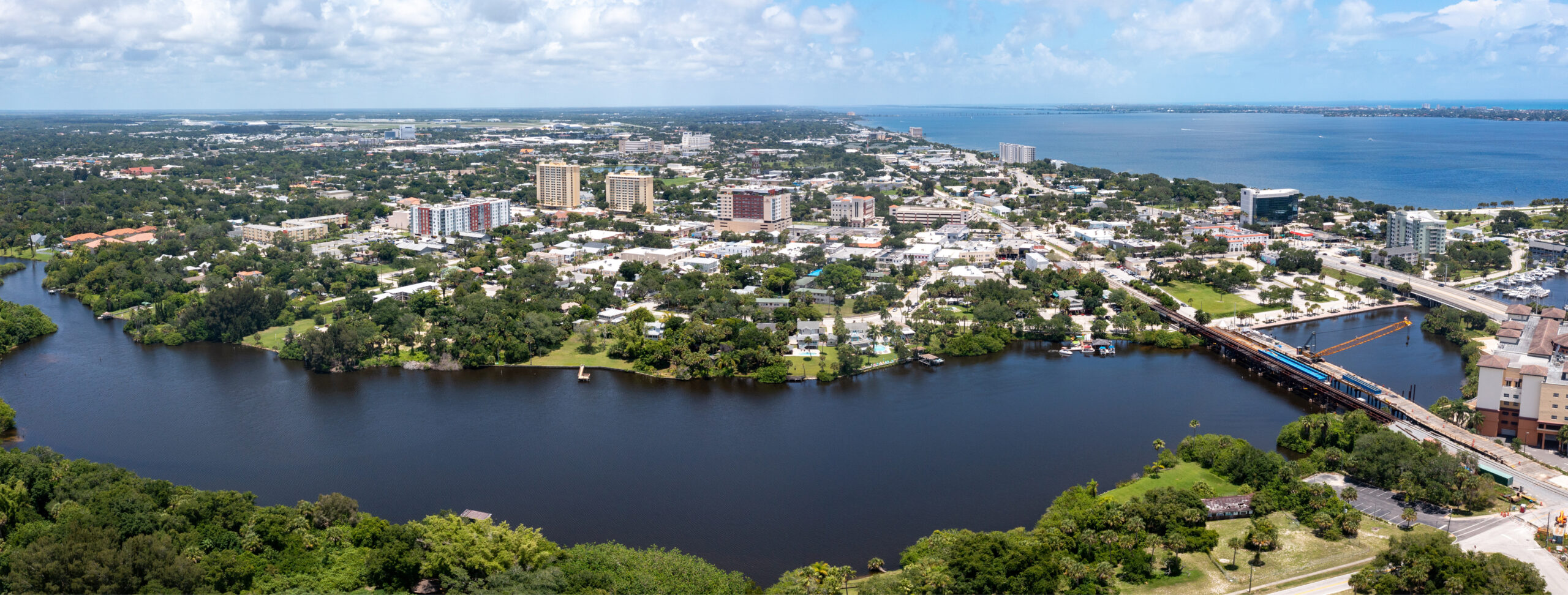Facing a second DUI charge in Florida is a serious matter with potentially life-altering consequences. While the state offers diversion programs and the potential for reduced penalties for first DUIs, Florida increases penalties dramatically on subsequent offenses.
Brevard County Second DUI Defense Attorneys
Any DUI charge is scary, whether you have no offenses on record or multiple. These charges are serious and can eventually lead to consequences as harsh as full license revocation. If you have a previous DUI charge and have been charged with a DUI, you need an experienced DUI defense attorney immediately.
Our office is located in Melbourne, Florida and we proudly serve the surrounding communities of Palm Bay, Titusville, Rockledge, Merritt Island, Cocoa, and Satellite Beach in Brevard County, Vero Beach and Sebastian in Indian River County, Deltona and Dayton Beach in Volusia County, and Kissimmee and Poinciana in Osceola County.
Contact Germain Legal by calling (321) 775-3559 or submit an online form today to start building your defense.
What a Prosecutor Must Prove for a Second DUI
- Operation or Control of a Vehicle: According to Florida Statutes Section 316.193, a prosecutor must show that the person was driving or in actual physical control of a vehicle in the state of Florida.
- Impairment: The prosecutor must prove that the person was impaired either by:
- Alcohol, resulting in a blood-alcohol level of 0.08 or more grams per 100 milliliters of blood, or a breath-alcohol level of 0.08 or more grams per 210 liters of breath.
- A chemical substance as outlined in the relevant Florida statutes.
- A controlled substance as defined under Florida law.
- Prior DUI Conviction: The prosecutor must establish that the individual has a previous DUI conviction on record.
- Timing of the Offense: For this to qualify as a second offense, the prior conviction must have occurred within a certain period relative to the new charge. Specifically, if the second offense occurs within five years of the prior DUI conviction, it is considered a second DUI under Florida law.
What Are the Penalties for Second DUI?
| Offense | Penalty |
| Second DUI Within 5 Years of Prior Conviction | Misdemeanor Fine: $1,000 to $2,000 Imprisonment: Mandatory minimum of 10 days up to 9 months (At least 48 hours must be consecutive) Driver’s License Suspension: Mandatory 5-year revocation Ignition Interlock: Mandatory for at least 1 year on all vehicles owned or operated by the individual |
| Second DUI More Than 5 Years After Prior Conviction | Misdemeanor Fine: $1,000 to $2,000 Imprisonment: Up to 9 months Driver’s License Suspension: 6 months to 1 year Ignition Interlock: Mandatory for at least 1 year on all vehicles owned or operated by the individual |
| Second DUI With BAC of 0.15 or Higher or Accompanied by a Minor | Misdemeanor Fine: $2,000 to $4,000 Imprisonment: Up to 12 months Ignition Interlock: Mandatory for at least 2 years on all vehicles owned or operated by the individual |
Other Consequences
- Probation: A second DUI conviction may result in probation for up to one year. As part of probation, the court can require participation in public service or community work, typically for at least 50 hours.
- Substance Abuse Treatment: The court will require the individual to attend a substance abuse education course through a licensed DUI program. This course includes a psychosocial evaluation to determine if further treatment is necessary. If referred for treatment, the individual must complete the program as a condition of probation.
- Ignition Interlock Device: For a second DUI conviction, the court requires the installation of an ignition interlock device on all vehicles the individual owns or routinely operates. This device prevents the vehicle from starting unless the driver passes a breath test for alcohol. If the offender had a BAL of 0.15 or higher, the interlock device must be installed for at least 2 years.
- Vehicle Impoundment or Immobilization: The court can order the impoundment or immobilization of the individual’s vehicle for 30 days. This action cannot overlap with any jail time and typically occurs during the period when the person’s driver license is revoked. However, certain exceptions might apply, such as when the vehicle is the only means of transportation for the family.
- Community Work or Public Service: As part of probation, the court can require the person to complete additional hours of community work or public service.
- Criminal Record: In addition to immediate penalties like fines and jail time, a second DUI conviction can have serious long-term effects. A conviction can leave a permanent criminal record, which can make it harder to find employment or secure housing.
- Loss of Custody or Visitation Rights: A second DUI conviction could potentially affect custody or visitation rights if you have children. Courts may view a second DUI as evidence of poor judgment or reckless behavior, which could influence decisions about your parental rights.
What Are Potential Defenses to Second DUI Charges?
- Improper Stop: The officer must have a valid reason for pulling over the driver. If the stop was made without reasonable suspicion of a traffic violation or criminal activity, any evidence gathered during the stop, including the DUI charge, may be challenged.
- Faulty Field Sobriety Tests: Field sobriety tests are subjective and can be influenced by factors like medical conditions, fatigue, or uneven surfaces. If the tests were improperly administered or if the driver’s performance can be attributed to something other than intoxication, this defense could be used to challenge the DUI charge.
- Inaccurate Breathalyzer Results: Breathalyzer devices must be properly maintained and calibrated. If the device used was faulty, improperly calibrated, or if the officer administering the test did not follow protocol, the results could be inaccurate.
- Medical Conditions Affecting BAC: Certain medical conditions, such as diabetes or GERD (gastroesophageal reflux disease), can affect the accuracy of breath tests, leading to falsely high blood alcohol concentration (BAC) readings.
- Lack of Probable Cause for Arrest: Even if the stop was legal, the officer must have probable cause to make an arrest. This means there must be enough evidence to reasonably believe the driver was under the influence.
- Miranda Rights Violation: If the driver was not properly informed of their Miranda rights before being questioned, any self-incriminating statements made may be inadmissible in court.
- Challenging the Accuracy of the Officer’s Observations: The officer’s observations are often a key part of the evidence in DUI cases. This defense questions the accuracy and reliability of those observations, particularly if they were affected by poor lighting, weather conditions, or the officer’s own biases.
- Necessity: In rare cases, a defense might argue that the driver was forced to drive under the influence because of an emergency situation.
Can a DUI Attorney Defend Me?
Facing a second DUI charge can be overwhelming, but having a lawyer who focuses on DUI cases can make a big difference. Here’s how they can help you.
First, your lawyer will help you understand what you’re up against. A second DUI carries heavier penalties than a first offense and knowing what’s at stake is important. Your lawyer will explain the possible consequences, such as fines, jail time, and license suspension, so you’re not caught off guard.
Next, your lawyer will look closely at the details of your case. They’ll gather and review all the evidence, such as police reports, breathalyzer results, and witness statements. By doing this, they can spot any weaknesses in the case against you or any errors made by law enforcement.
Your lawyer will also guide you through the court process. This includes helping you prepare for hearings, advising you on what to say (and what not to say), and making sure you understand each step along the way. They’ll handle all the paperwork and deadlines, so you don’t have to worry about missing something important.
Negotiating with the prosecutor is another key area where your lawyer can help. They may be able to negotiate a plea deal that reduces the charges or penalties you face. This can be especially valuable in a second offense case, where the penalties are more severe.
Finally, your lawyer will prepare you for what happens after the case is over. Whether it’s dealing with probation, fines, or getting your license back, they’ll make sure you know what to do next. They can also connect you with resources like DUI education programs, which might be required as part of your sentence.
Frequently Asked Questions
What happens if someone refuses to take a breathalyzer test for a second DUI offense in Florida? Refusing to take a breathalyzer test during a second DUI arrest in Florida can result in an automatic driver’s license suspension for 18 months. Additionally, refusal may be used as evidence against the person in court, potentially leading to harsher penalties. Florida’s “implied consent” law means that by driving, one consents to chemical tests; refusal breaches this agreement.
Can someone drive with a hardship license after a second DUI conviction? After a second DUI conviction in Florida, a person may be eligible to apply for a hardship license. This license allows restricted driving privileges, typically limited to essential activities like work or medical appointments. Eligibility for a hardship license usually requires completing a DUI school and waiting for a certain period after the conviction. The court or the Department of Highway Safety and Motor Vehicles determines eligibility.
Can a second DUI offense be expunged from someone’s record in Florida? In Florida, DUI convictions, including a second offense, cannot be expunged or sealed from a person’s criminal record. DUI offenses are permanent on a person’s record, and the conviction will remain visible during background checks.
What impact does a second DUI conviction have on car insurance rates? A second DUI conviction in Florida can significantly increase car insurance rates. Insurers may classify the convicted person as a high-risk driver, leading to premiums that are substantially higher than average. In some cases, the insurer might cancel the policy altogether.
Additional Resources
Florida Statutes Section 316.193 – This Florida statute outlines the legal consequences for DUI in Florida. The law details what constitutes a DUI offense, including driving with a blood-alcohol level of 0.08 or higher, and the associated penalties. These penalties range from fines and imprisonment to mandatory installation of an ignition interlock device. The law also addresses enhanced penalties for repeat offenders and those causing injury or death while driving under the influence.
Licensed DUI Programs in Florida – The Florida Department of Highway Safety and Motor Vehicles oversees licensed DUI programs throughout the state. These programs provide mandatory education and evaluation services for individuals convicted of DUI offenses. There are two levels of courses: Level I for first-time offenders and Level II for repeat offenders. The courses are designed to educate individuals about the dangers of driving under the influence and prepare them for possible treatment. Participation in these programs is often required to regain driving privileges.
Florida Statutes on Driver Programs – Florida Statutes Sections 322.291 and 322.292 address driver improvement schools and DUI programs in Florida. These laws require that individuals with certain traffic violations, including DUI, attend advanced driver improvement or substance abuse education courses before their driving privileges can be reinstated. The Department of Highway Safety and Motor Vehicles is responsible for licensing and regulating these programs.
Hire a Second DUI Defense Attorney in Brevard County, FL
If you or a loved one have been charged with a DUI you need to contact an experienced DUI defense attorney immediately.
Our office is located in Melbourne, Florida and we proudly serve the surrounding communities of Palm Bay, Titusville, Rockledge, Merritt Island, Cocoa, and Satellite Beach in Brevard County, Vero Beach and Sebastian in Indian River County, Deltona and Dayton Beach in Volusia County, and Kissimmee and Poinciana in Osceola County.
Contact Germain Legal by calling (321) 775-3559 or submit an online form today to start building your defense.



